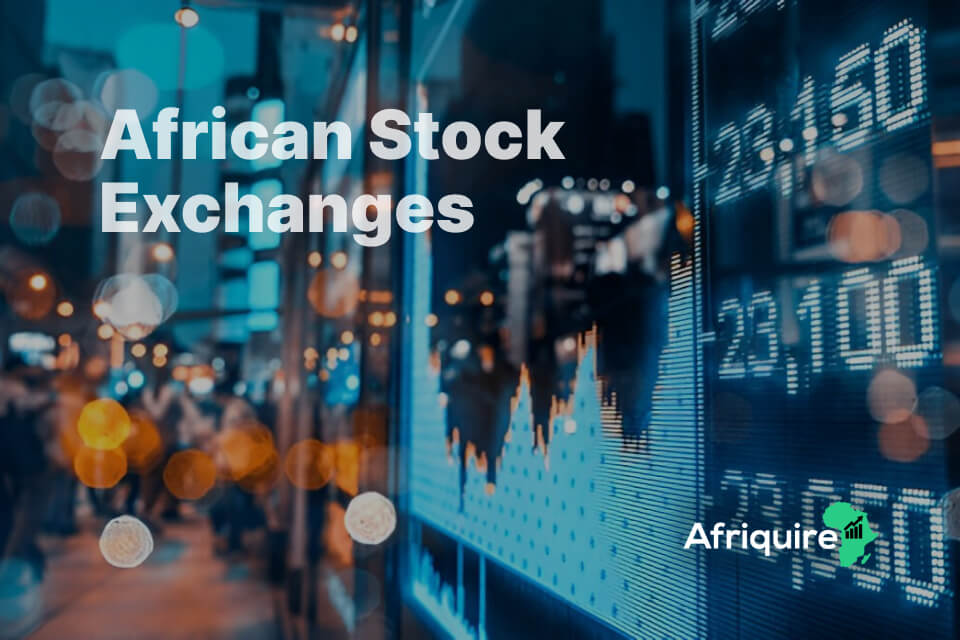- Introduction
- Understanding African Stock Exchanges
- Opening an Investment Account
- Buying and Selling Shares
- Benefits and Risks of Investing in African Stock Exchanges
- Risks: Market Volatility, Liquidity, and Currency Exposure
- Future Outlook of African Stock Markets
- Frequently Asked Questions (FAQs)
- Conclusion
Introduction
Have you ever wondered how people invest in African stock exchanges? Now’s the best time to learn. Africa’s markets are growing stronger every year, and more young people are searching for ways to grow their money and join the continent’s economic progress. Right now, there are opportunities almost everywhere you look. Whether you dream of building wealth for your future or you only want to understand your choices, this guide will make it simple for anyone, especially young Africans and first-time investors. With the right steps, good research, and patience, investing in African stock exchanges can open doors to long-term growth and financial freedom.
Overview of Stock Exchanges in Africa
In the last twenty years, African stock exchanges have developed very fast. Today, the continent has 29 official stock exchanges. The biggest one is the Johannesburg Stock Exchange (JSE) in South Africa, which controls more than one trillion dollars in value. The Nigerian Exchange Group (NGX), Nairobi Securities Exchange (NSE) in Kenya, and the Egyptian Exchange (EGX) are also top leaders in their regions.
Even smaller markets like the Botswana Stock Exchange and the BRVM in West Africa have stayed strong, even during difficult times. These stock exchanges allow people to buy shares in companies, government bonds, and sometimes even international businesses. Because of mobile apps and digital platforms, it is now possible for anyone to invest with just a phone or laptop.
Why African Stock Markets Matter for Investors
African stock markets are very important for the future. They help companies collect money to grow, and this growth creates jobs and supports innovation. Since Africa’s population is increasing fast and the middle class is rising, many businesses need more money—and stock exchanges are the solution. For investors, African markets can also give higher returns than some Western markets, especially in fast-moving areas like technology, banking, and agriculture. Of course, there are also risks like currency changes, politics, and sudden market swings. Yet, if you do enough research, diversify your investments, and seek advice, you can reduce these risks and enjoy great rewards over time.
Purpose and Scope of This Guide
This guide on investing in African stock exchanges will teach you the most important things you must know. You will understand African stock exchanges, know how to open an investment account, buying and selling shares, programs and resources available in the stock market and what the future of the stock market looks like. Moreover, you will learn how to avoid common mistakes, use brokers and ETFs wisely, and manage risks while spotting new opportunities.
Understanding African Stock Exchanges
What a Stock Exchange Is and How It Works
A stock exchange is simply a place where people buy and sell shares of companies. You can imagine it like a big market, but instead of foodstuff, people trade pieces of companies. When you buy shares, you own a small part of that company. If the company grows and makes more money, the value of your shares can also increase, and you may sell them later for profit.
Trades happen through brokers or online platforms, and prices move up and down depending on demand and supply. Each exchange is watched over by a financial authority to make sure trading is fair and safe. So, before you start, it is very important to know the rules and always choose a trusted broker. With this background, it becomes easier to see how investing in African stock exchanges can help you build wealth over time.
Major African Exchanges: JSE (South Africa), NSE (Nigeria), and Others
Across Africa, many stock exchanges give investors the chance to grow money. The Johannesburg Stock Exchange (JSE) in South Africa is the biggest, with more than $1 trillion in assets. The Nigerian Stock Exchange (NSE) is the largest in West Africa, with big banks, telecoms, and popular consumer companies. Other key ones are the Nairobi Securities Exchange in Kenya, the Egyptian Exchange (EGX), the Casablanca Stock Exchange in Morocco, and the Ghana Stock Exchange.
Each exchange has its own special rules, size, and companies. Excitingly, most African exchanges are now digital, so you can trade shares with your phone or computer. For example, many platforms use mobile apps, which make it easier and less stressful for new investors to start.
Growth and Opportunities in African Capital Markets
African stock markets are growing fast because of technology, urbanisation, and a rising middle class. This growth brings fresh chances for investors who want to diversify. Many exchanges also offer exchange-traded funds (ETFs), which allow people to invest in many companies at once, even with little money.
Moreover, projects that connect regional markets are making cross-border investment possible. Popular sectors include fintech, agriculture, telecoms, and consumer goods. Still, you must remember to research carefully, watch currency risks, and follow financial news.
As a tip, you can look into stock exchange platforms and mobile tools to provide expert guidance and cheaper access to different investments. Therefore, knowing how to invest in African stock exchanges is about picking the right market, managing risk, and staying alert to opportunities.
Preparing to Invest
When you want to learn how to invest in African stock exchanges, it is very important to prepare well. Good preparation helps you make smart choices, avoid mistakes that cost money, and reach your financial goals faster. Investing in African stock markets can look exciting, but success comes only when you are ready and focused.
Setting Financial Goals Before Investing
Before you start, you need to know your goals. Do you want to save money for university, build wealth for the future, or just grow your savings little by little?
First, write your goals down and decide when you want to achieve them. This will guide you on how much to invest, for how long, and which type of stocks or funds to pick. Clear financial goals are like a map; they show you where you are going.
As you move forward, always check your progress and adjust when needed. This will keep you motivated even when the stock market goes up and down.
In addition, when you know your purpose, you can choose the right option—like buying shares directly on the Johannesburg Stock Exchange or using wider Africa ETFs. In this way, you keep your plans clear and your investments more focused.
Understanding Risk and Return in African Markets
African stock exchanges bring many chances. Sometimes, the returns are higher than in big developed countries. But the risks can also be greater. Markets can change very fast, so you must know how much risk you can accept. For example, changes in government or currency value may affect your money. Always think carefully: how much can you afford to lose?
One smart way to reduce risk is to spread your investments across many sectors and countries by using ETFs. Also, make sure you read local news, follow government policies, and learn how currency risk may cut your profits. By understanding risk and return, you are better prepared to handle challenges and still succeed.
Key Documents and Requirements for Opening Accounts
To start investing, you need to open an account with a local broker or an online platform that allows access to African markets. The documents you need include:
- A valid ID card or passport
- Proof of address (like a utility bill or bank statement)
- Tax identification number
- Proof of income or job status (sometimes)
Most brokers now allow online registration, so it is easier to start from anywhere. After your account is active, you can deposit money, pick your stocks, and begin trading.
However, if you are an international investor, you may need extra proof or permission, so always check your country’s rules first.
Finally, research your broker well and confirm it is safe and registered. Preparing these documents early makes your journey smoother and helps you stay compliant.

Opening an Investment Account
Learning how to invest in African stock exchanges is a smart way to grow your money and take part in Africa’s growth story. With exchanges like the Johannesburg Stock Exchange, the Nigerian Exchange Group, and the Nairobi Securities Exchange, young people now have a chance to own shares in local and global companies. Today, it is easier than ever to start if you follow the right steps and do your research.
Choosing a Licensed Broker or Platform
First, you need a licensed broker or an approved online platform. This broker is like your guide that helps you buy and sell shares safely. Always check that the broker is registered with the local regulator, for example, the Securities and Exchange Commission (SEC) in Nigeria or the Financial Sector Conduct Authority (FSCA) in South Africa.
In addition, many brokers now provide apps and websites so you can invest from your phone. Before you choose, compare their fees, read customer reviews, and test how good their customer support is. Take your time, ask questions, and make sure you feel safe before you decide.
Account Setup and Verification Process
After choosing a broker, the next step is to open your account. Normally, you start by filling a form online or on paper. You will provide your details, proof of identity (like a passport or national ID), and proof of address. Some brokers may also ask for your tax number.
Once you send the documents, the broker will check them to follow the law and prevent fraud. This check can take from a few hours to some days. After approval, your account is ready, and you can now begin your investment journey.
Funding Your Investment Account
The next step is to put money inside your account. Most brokers accept bank transfers, mobile money, debit cards, or even fintech apps. Always check if there is a minimum deposit before you start. When the money reflects, you can begin to buy your first shares or exchange-traded funds (ETFs). However, remember this important rule: do not put all your money in one place. Try to spread your investments across different companies and industries to reduce risk.
Buying and Selling Shares
Investing in African stock exchanges is one of the smart ways to grow your money and also support Africa’s economic progress. But how can you actually buy and sell shares? First, you need to learn how to research stocks, place trades, and also manage your investments wisely. Let us break it down step by step.
How to Research and Select Stocks
Before buying any share, you must do your homework very well. Start by checking companies listed on popular African stock exchanges such as the Johannesburg Stock Exchange (JSE), Nigerian Exchange (NGX), and Nairobi Securities Exchange (NSE). Look at the company’s financial health, business model, and how strong it is in the market.
Furthermore, follow news about the industry and government policies that can affect stock prices. For example, if there is a new tax policy, it can affect profits of certain companies. When you gather this information, you will be able to choose strong companies with good growth chances and also avoid risky ones. Remember, in investing, knowledge is power.
Step-by-Step Process of Placing a Trade
After selecting a stock, the next step is to open a brokerage account. This can be with local brokers or online platforms that are licensed to trade on African stock markets. Once you set up your account and put money inside, you can now place a trade. This simply means telling your broker which stock you want and how many shares to buy or sell. The trade will happen during the stock exchange’s trading hours.
Always confirm the share price and also know the fees you will pay. With time and practice, buying and selling shares becomes easier. Therefore, do not be afraid to start small, learn with patience, and grow your skill.
Monitoring and Managing Your Portfolio
Buying shares is only the beginning. You must also manage your investment portfolio carefully. This means checking how your shares are performing, following company updates, and watching the market. Sometimes, you may decide to sell shares when the price is high or buy more when the price drops.
In addition, diversifying (investing in different industries or stock exchanges) will help reduce risk. Always review your goals to make sure your investments still match what you want to achieve. Wise management of your portfolio is the key to success.
Benefits and Risks of Investing in African Stock Exchanges
Investing in African stock exchanges is exciting because it can give you great opportunities, but it also has some risks. To invest wisely, you must understand both the good and the bad side.
Potential for High Growth and Diversification
Africa is one of the fastest-growing regions in the world. Many countries are developing quickly, and their economies are expanding. This means that by investing in African stock exchanges, you can benefit from that growth. For example, you can invest in companies in technology, banking, natural resources, or agriculture—industries that are very important for Africa’s future.
Also, investing here gives you diversification. This simply means spreading your money across different countries and industries. When you diversify, you reduce risk because your money is not tied to only one place. For instance, big stock markets like the Johannesburg Stock Exchange in South Africa, the Nigerian Exchange Group, and the Nairobi Securities Exchange in Kenya all list companies with strong growth chances. So, investing in them can make your portfolio richer and stronger over time.

Risks: Market Volatility, Liquidity, and Currency Exposure
However, African stock markets also have their challenges. One main problem is market volatility. Because the markets are smaller and less stable, stock prices can change very fast—sometimes going up and down within a short time. This can affect the value of your investment.
Another risk is liquidity. In some cases, there are not enough buyers and sellers. This makes it difficult to sell your shares quickly without reducing the price.
Also, currency risk is a big issue. Many investments are in local African currencies, which can lose value against strong currencies like the US dollar. If the exchange rate moves against you, your returns may drop.
Balancing Risks with Long-Term Opportunities
Even though these risks sound scary, many investors believe the long-term benefits are worth it. With proper research, smart planning, and patience, you can manage these risks well. For example, using exchange-traded funds (ETFs) that focus on African markets allows you to spread your risk because they include many companies at once.
Therefore, before you invest, think about your goals and how much risk you can take. Remember, Africa’s economy is growing, and with the right knowledge, brokers, and investment strategies, you can enjoy the rewards while avoiding big mistakes.Programs and Resources Available
Investing in African stock exchanges can be exciting because there is plenty of opportunity. But it can also feel difficult if you don’t understand how the market works. Luckily, there are programs and resources created to help beginners and experienced investors make smarter choices. By knowing about these supports, you can learn how to invest in African stock exchanges with more confidence.
Government Initiatives Supporting Retail Investors
Across Africa, governments are working hard to make stock market investing easier for ordinary people, not just for big companies. For example, they give tax incentives, reduce account opening stress, and improve market transparency.
In Nigeria, the Securities and Exchange Commission has already started campaigns to show citizens the benefits of investing. In South Africa, rules are set in place to protect investors and build trust. All these efforts try to encourage more people to take part in stock exchanges, making the market more active and inclusive.
Investor Education and Training Programs
Education is very important if you want to invest wisely. Without knowledge, many people make mistakes. This is why several organisations provide training and resources. The African Securities Exchanges Association (ASEA) and many stock exchanges now offer free workshops, webinars, and online classes. For example, the Johannesburg Stock Exchange has online courses that teach the basics of shares, ETFs, and trading strategies.
These programs make investing less scary and give you skills like risk management, diversification, and how to study company performance. The more people understand, the better decisions they make, and this also helps them support African startups through venture capital.
Regional Integration Efforts (e.g., African Exchanges Linkage Project)
Another exciting step is the African Exchanges Linkage Project (AELP). This project connects stock markets in different African countries, so investors can easily buy and sell shares across borders. It creates a bigger and more liquid market that is attractive to both local and international investors.
By harmonising regulations and making cross-border investing simple, AELP helps solve some of the challenges in African stock markets. It also provides investors with more options for growth.
Future Outlook of African Stock Markets
Trends Driving Growth in African ExchangesAfrican stock markets are moving fast, and this is opening many chances for investors who want to know how to invest in African stock exchanges. The growth is pushed by strong economic activity, more interest from both local and foreign investors, and steady improvements in financial systems. Africa is home to some of the world’s fastest-growing economies, and this positive energy shows clearly in the stock exchanges.
Also, sectors like technology, consumer goods, and infrastructure are rising quickly, and they keep pulling investors who want to grow their money. Because of these exciting trends, African stock markets are becoming more attractive for anyone looking to diversify and build wealth.
Role of Technology and Digital Trading Platforms
Technology is also changing African stock markets in amazing ways. Today, electronic trading platforms make it easier and faster for people to buy and sell shares without travelling to a physical stock exchange. Even more, mobile trading apps are spreading fast in Africa since many people already use smartphones but may not have access to big banks or brokers. This digital shift is powerful because it reduces stress, cuts cost, and allows more people to join.
At the same time, new tools like blockchain are being tested to bring more trust, security, and transparency into trading. These digital moves are not only making investment easier, but they are also helping to build stronger confidence in African stock exchanges.
Opportunities for Regional and Global Investors
The future of African stock markets looks bright for both regional and global investors. Inside Africa, investors can explore many countries and find growing companies in different sectors. For global investors, Africa is becoming a good place to diversify and aim for higher returns than in already developed markets. With Africa’s rising middle class and expanding consumer markets, the opportunities are special.
Furthermore, projects like the African Exchanges Linkage Project are making it easier to invest across different countries, connecting stock exchanges in new ways. For those asking how to invest in African stock markets, the future is clearer, easier, and full of fresh possibilities.

Frequently Asked Questions (FAQs)
1. What is the easiest way to invest in African stock exchanges?
The easiest way is through exchange-traded funds (ETFs) that track African markets. They provide instant diversification and lower risk.
2. Can I invest directly in African stocks from outside Africa?
Yes, you can invest through international brokers or by purchasing African depositary receipts listed on foreign exchanges.
3. Which are the major African stock exchanges?
Key exchanges include the Johannesburg Stock Exchange (South Africa), Nigerian Exchange Group, and Nairobi Securities Exchange (Kenya).
4. What risks should I be aware of when investing in African stocks?
Risks include currency fluctuations, political instability, limited market liquidity, and regulatory differences.
5. How do I reduce risk while investing in African stock markets?
Diversify your investments across countries and sectors, monitor political developments, and consider currency risk management strategies.
Conclusion
Investing in African stock exchanges is a smart way to tap into the continent’s growth and rising middle class. Understanding how to invest in African stock exchanges requires patience, research, and smart strategies like using ETFs or diversified funds. With the growing role of technology and improved market regulations, investors can access a range of promising companies across sectors. However, investors must be mindful of challenges such as currency fluctuations and regulatory issues.
By learning how to build relationships with brokers, staying informed, and diversifying investments, anyone can benefit from the impact of venture capital on African economies and explore exciting opportunities in African markets. The time to start investing is now.



